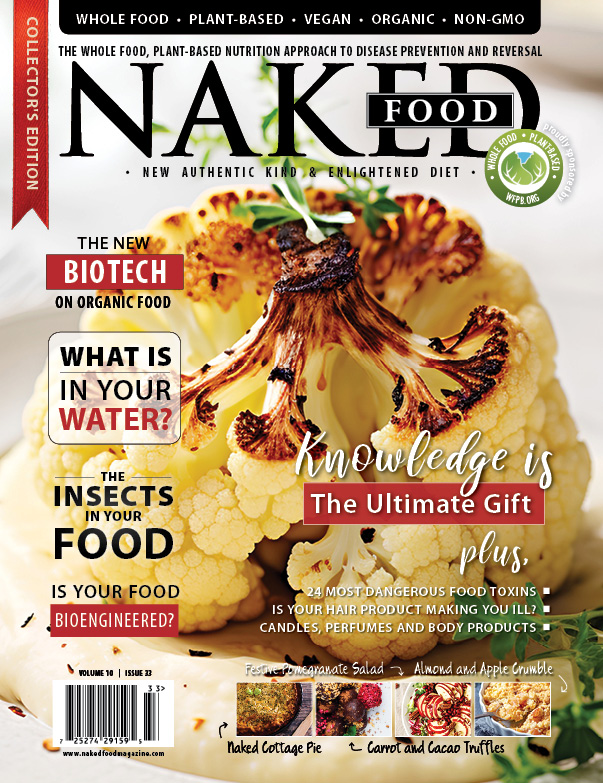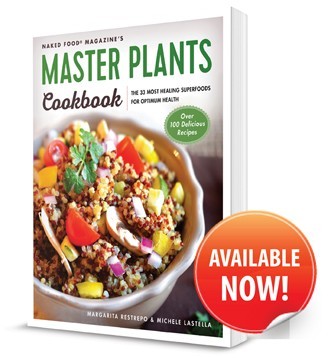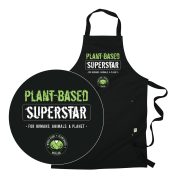 2 years ago
2 years ago
Zero-Waste Pumpkin Carving
1. Carve a Pumpkin
Scoop out seeds and strings and place into one bowl. Then use a strong spoon to scrape the walls for the “flesh” that can be used …
Read More
 5 years ago
5 years ago
The Red Carpet Goes Green!
For the first time in history, the most talented stars in Hollywood enjoyed a completely plant-based dinner during the 77th edition of the Golden Globe awards. The example set …
Read More
 6 years ago
6 years ago
GMO Potato Moved To High-Risk List
The potato has been added to the High-Risk list of the Non-GMO Project Standard because a GMO potato variety is now “widely commercially available” in the United States. To determine …
Read More
 7 years ago
7 years ago
Bike-Riding Harvesters
Here’s the scoop: several years ago, Chris Castro, a 27-year old from Orlando, Florida, evaluated his hometown and realized that most of the suburban yards around him were overusing water. …
Read More
 7 years ago
7 years ago
Conventional vs. Organic Agricultural Methods
Pollution:
Conventional: Fertilizer runoff pollutes coastal areas and can strip water of oxygen, spur algae growth, and kill marine life.
Organic: No chemical pesticides or fertilizers are applied to organic …
Read More
 7 years ago
7 years ago
Nursery Fields Forever: Farming Preschool Would Teach Kids How to Grow Their Own Food
A few clever Italians have come up with an amazing proposal, and their design of an innovative nursery school just won them the AWR International Ideas Competition award. Their project, …
Read More
 8 years ago
8 years ago
Eating Plant-based During the Winter
1. First Thing First.
The key is to stick to seasonal produce as much as possible. We are going to want potatoes, yams, pumpkins, and tangerines among others. Sticking to …
Read More
 8 years ago
8 years ago
Ugly Fruits and Veggies are in!
Entrepreneurs outside the grocery industry want to convince shoppers that there’s nothing wrong with cosmetically imperfect produce.
The diameter of each Brussels sprout shall not be less than one inch. …
Read More
 8 years ago
8 years ago
Reality Check: What a World Without Bees Looks Like
Bees play a critical role in our food system, pollinating a majority of the foods we eat every day, unfortunately, the pesticides used on many of these crops are killing …
Read More
 8 years ago
8 years ago
A GMO label that doesn’t say “GMO”?
Republicans and Democrats on the U.S. Senate Agriculture Committee have struck a deal that would create the first nationwide standard for foods containing genetically modified organisms.
Under the agreement, consumers …
Read More
 8 years ago
8 years ago
Conventional Strawberries Rank #1 With Most Pesticides
Nearly all strawberry samples—98 percent—tested by federal officials had detectable pesticide residues. Forty percent had residues of 10 or more pesticides and some had residues of 17 different pesticides. Some …
Read More
 9 years ago
9 years ago
10 Reasons We Don’t Need GM Foods
By Claire Robinson, MPhil, Michael Antoniou, PhD, and John Fagan, PhD for the Non-GMO Project
1. GM crops do not increase yield potential
Genetically modified (GM) crops do not increase …
Read More
 9 years ago
9 years ago
Awesome Foods That Regrow Themselves From Scraps
Eating well can be expensive. Buying produce that is either organically grown, local, biodynamic, or non-gmo, is unfortunately, not easy to find or inexpensive. Nonetheless, ingesting pesticide residue is not …
Read More
 12 years ago
12 years ago
McCartney: Meat Free Monday to help the planet
Everything we do, take, eat, or buy has a carbon footprint, and therefore an impact on climate change. Food production is, in fact, a major contributor. Agriculture as a whole …
Read More























